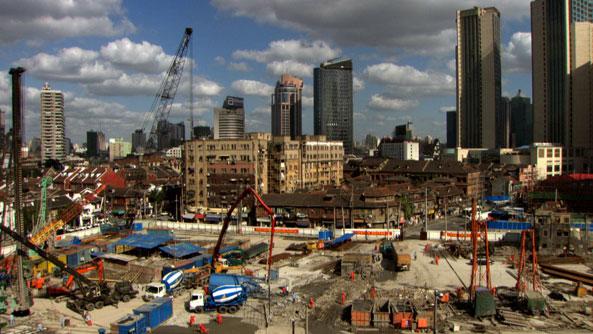How will people in Shanghai continue to find space for the many new immigrants, and what does growth mean for the city's relationship with its own history?
These questions are among those reflected upon via the films two main characters: Xixan Xu, a passionate amateur photographer, who has spent a lifetime documenting the changes the city has undergone, and who himself has become a victim of Shanghai's development; and Yu Shu, an urban planning professor who fantasizes about a future city underground. Nanna Frank Møller tells:
"To me it seems natural that a film is driven by characters with whom I can identify. That is why I never doubted that, even though the assignment was based on portraying a city, the film could of course tell different peoples' stories. And because the project was about a city like Shanghai, I immediately came to think of how the individual finds space for himself in the constant change that this special place represents. How does one find space in a place where there is so little space?"
In the film, the viewer recognizes your aesthetic preferences and the significant space around the people you film. Was maintaining your own voice a particular challenge within the given framework?
"Filming is a very intuitive process in which one is always making decisions on the spot concerning what to include in the images. However, it was naturally a challenge to incorporate different factual pieces of information, as that is something I generally do not work with. My solution was to regularly try to intuit whether including the relevant information contributed something to the characters. Subsequently, the task consisted of getting the two main characters to interact, playing off the man-on-the-street with the official who represents the state, and getting them both to interact with the city in a movement that can be called a filmic narrative."
Have you at any time felt that your tranquil cinematic language might not work against the experience of being in a hectic metropolis, where one's senses are constantly bombarded?
"No, because even though one finds oneself in a megacity, the individual is still in his or her subjective present, which is generally peaceful. That is also why it was a blessing to have a main character who was a photographer, who in this sense exudes tranquility amidst chaos. So no, I don’t feel that I’ve forced form onto reality."
Where does your general penchant for open, one-face images come from?
"From a technical point of view, it must have something to do with my experience as a film cutter. For me, editing film is transferring feeling and energy from one image to another, and that type of image is simply great to cut between. The wider the passage through which feeling can flow, the better. From a more thematic standpoint, I feel it coincides with the fact that, in my preparation, I try to embrace whatever currents are moving through a big city like Shanghai."
"On one level you might say that, historically, there has not been enough space to think independently in China, which is also something that Xixan Xu felt during the Cultural Revolution. On another level, we have the professor who has visions of tomorrows China having open space, and that said space may be located underground. I work with this from a rhetorical standpoint, in the sense that one might hope that the city's many cranes and constructions sites are the result of having invited foreign firms to invest in Shanghai, and that the new buildings are therefore really a symbol of China beginning to open itself up to the outside world."

